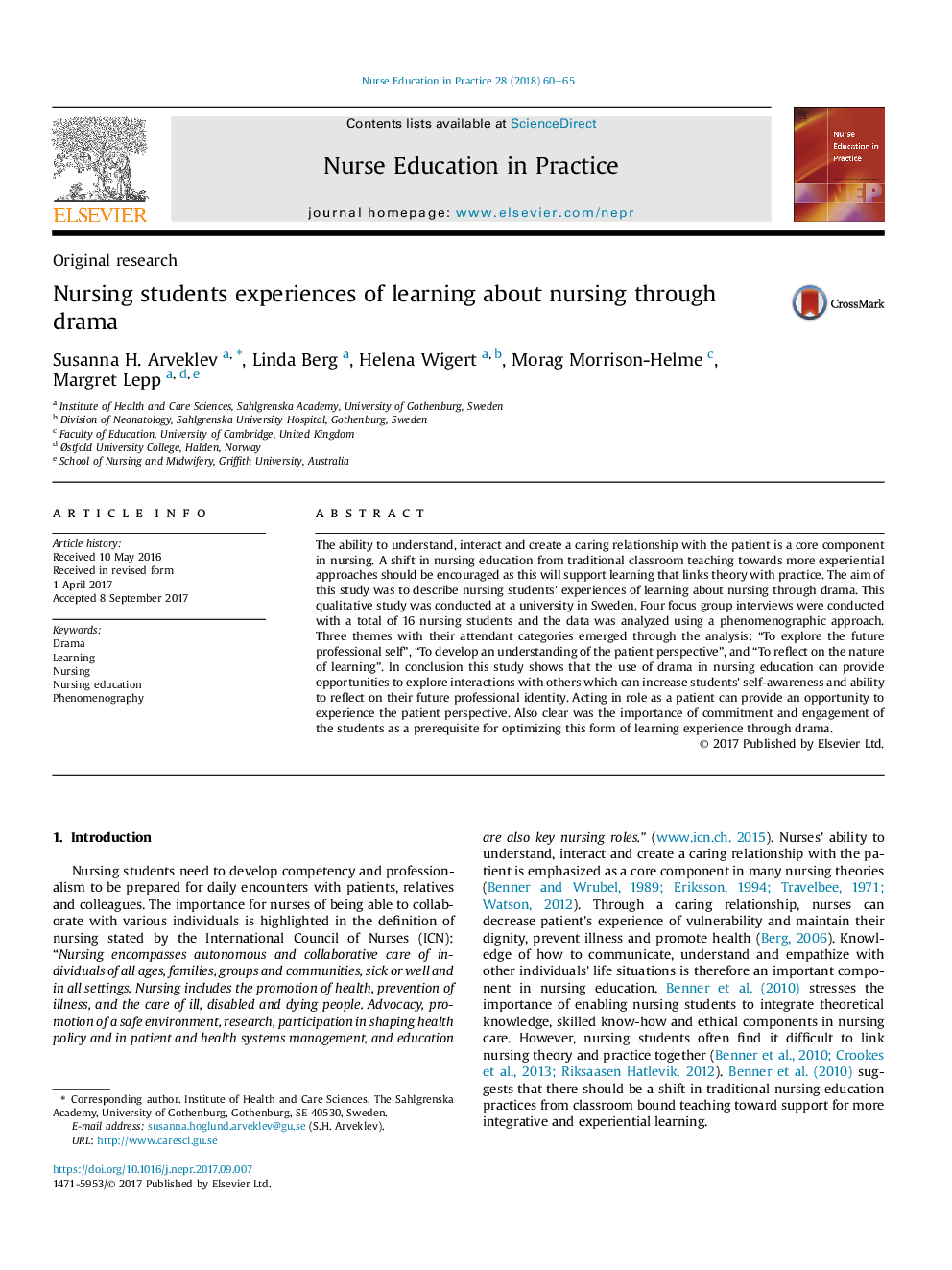| Article ID | Journal | Published Year | Pages | File Type |
|---|---|---|---|---|
| 4940370 | Nurse Education in Practice | 2018 | 6 Pages |
â¢Drama in nursing education gives opportunities to explore interactions with others.â¢Drama can increase self-awareness and reflection on professional identity.â¢Acting in role as a patient gives nursing students an opportunity to experience the patient perspective.â¢Commitment and engagement by the participants is a prerequisite for optimizing the learning experience through drama.
The ability to understand, interact and create a caring relationship with the patient is a core component in nursing. A shift in nursing education from traditional classroom teaching towards more experiential approaches should be encouraged as this will support learning that links theory with practice. The aim of this study was to describe nursing students' experiences of learning about nursing through drama. This qualitative study was conducted at a university in Sweden. Four focus group interviews were conducted with a total of 16 nursing students and the data was analyzed using a phenomenographic approach. Three themes with their attendant categories emerged through the analysis: “To explore the future professional self”, “To develop an understanding of the patient perspective”, and “To reflect on the nature of learning”. In conclusion this study shows that the use of drama in nursing education can provide opportunities to explore interactions with others which can increase students' self-awareness and ability to reflect on their future professional identity. Acting in role as a patient can provide an opportunity to experience the patient perspective. Also clear was the importance of commitment and engagement of the students as a prerequisite for optimizing this form of learning experience through drama.
